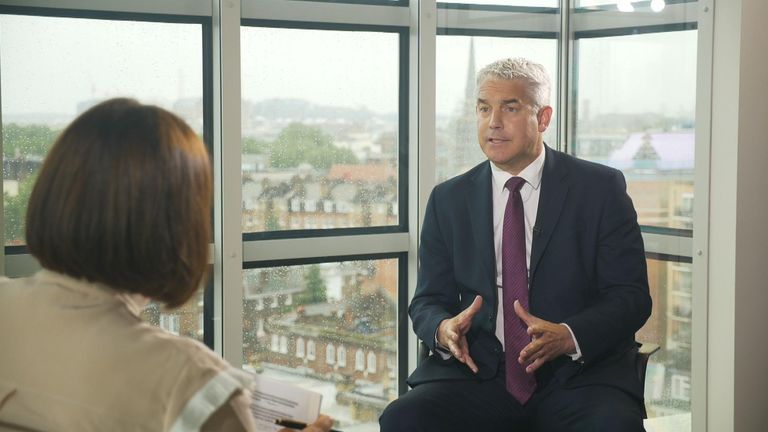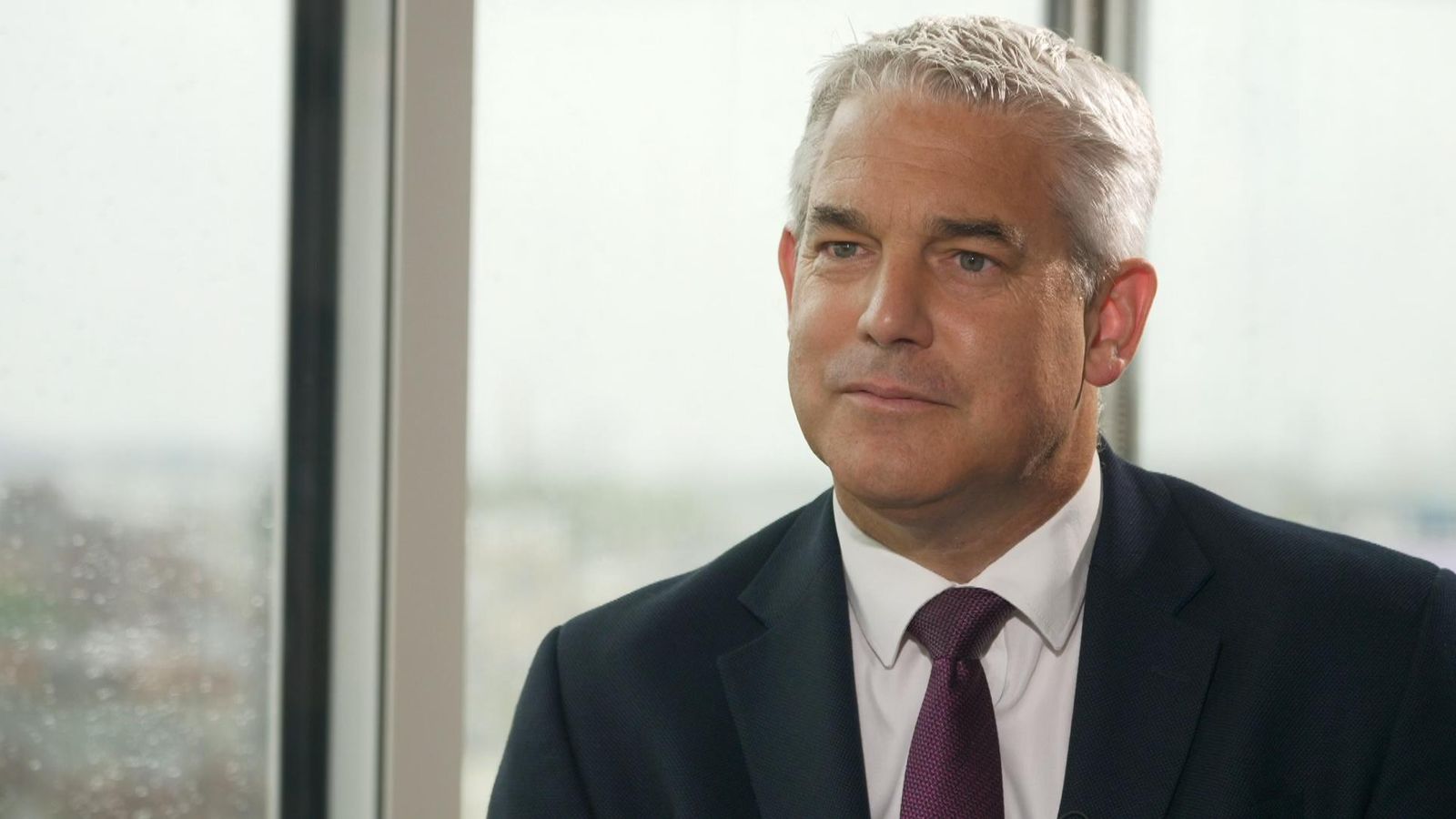
The health secretary has refused to accept Conservative spending cuts have played a role in problems faced by the health service – blaming an ageing population, rising costs and the pandemic instead.
In an exclusive interview with Sky News’ Beth Rigby, Steve Barclay rejected the findings of a King’s Fund report from April, which said the health service had “declined since 2010, as a result of much lower funding increases, limited funds for capital investment and neglect of workforce planning”.
When the quote was put to him, he said: “In the period between 2010 and 15, when there was a coalition government, we were dealing with the consequences of the financial crash under the previous government in 2008. And difficult decisions had to be taken in that period.”
Asked by Beth Rigby if that amounted to an acknowledgement that funding was part of the problem he said: “Let me finish. Of all the departments that the Cameron-Clegg government protected, actually Health was more protected than other departments.”
“But it is the case, we’ve had an older population, medical advances, costs have increased,” he added.
Read more: 90% of people don’t think the NHS will improve
Pressed repeatedly on the question of whether spending cuts were a contributory factor in the growing waiting lists and poor performance of the health service, Mr Barclay said: “We’re investing in our workforce, in our NHS estate, in the latest technology. That is how we build a sustainable NHS for the future.”
When Beth Rigby asked whether his ultimate message to the public was to “keep the faith”?, Mr Barclay responded: “Yes”.
Addressing the 75th anniversary of the health service, Mr Barclay said: “I think the NHS really is at the heart of our national life. So whilst its scale has changed, its ability to save lives and treat people has advanced massively. It’s also stayed very true to itself, and if you look at, for example, the late Her Majesty the Queen awarding the George Cross to the NHS, that just underscores just how central it is to the British public.”
Read more:
‘A hugely important day’ for NHS as longterm workforce plan unveiled
When is the junior doctors’ strike?
Plans to halve number of medics being recruited from abroad
Click to subscribe to the Sky News Daily wherever you get your podcasts
He also indicated a shifting focus, with a growing emphasis on prevention as well as treatment:
“I think the NHS will need to evolve much more on to prevention, rather than simply looking at treatments as we have the pressure of a growing older population, also people living with multiple conditions, 1 in 4 of the British public now have two or more conditions and that’s why we’re focused through our major conditions strategy, looking at treating people more holistically.
“That also plays into, for example, clinical training. And when we have the long term workforce plan, we’ll look at the importance of general training alongside specialism so it will need to evolve, but part of that evolution I think will be much more focused on prevention and treating conditions early because if you identify a health condition early, not only are the patient outcomes so much better, but also that is far cheaper to treat.”
Can we mend the NHS? Watch a special programme at 1800 with Mark Austin on Sky News












